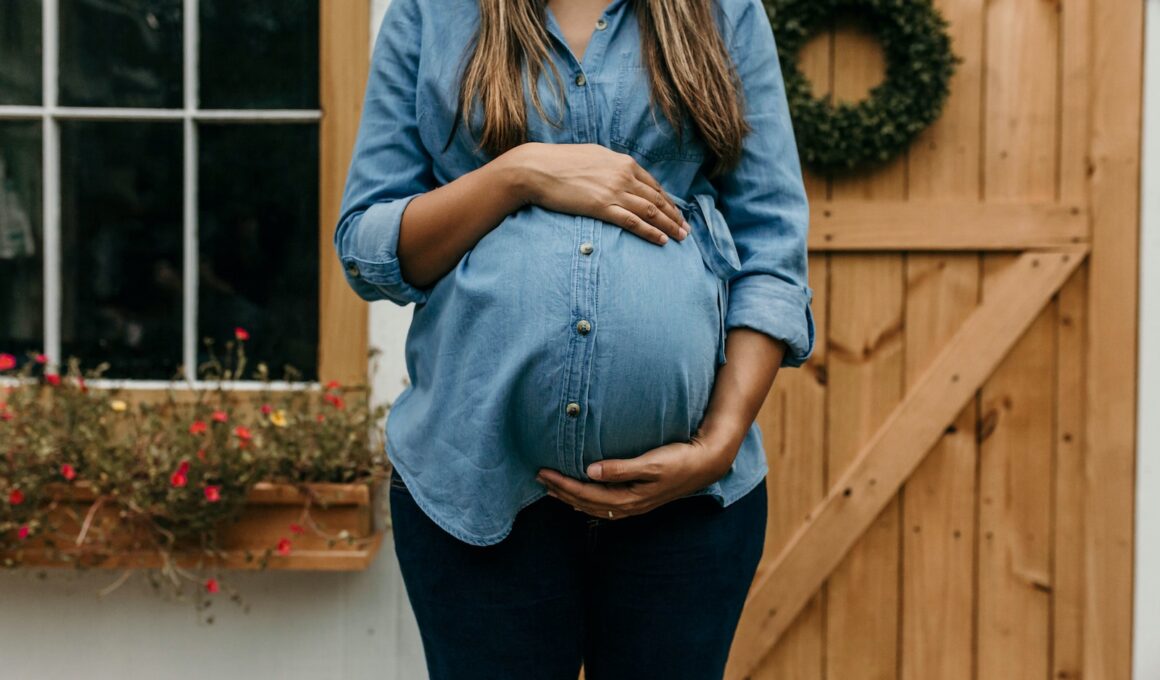When you’re trying to conceive, having sex during the day of and five days before your ovulation has the highest chance of success. Conception happens when a sperm makes it past the cervical mucus and into the fallopian tube to reach an egg, and fertilize it.
Some things like lying still after sex (the missionary position) may help give sperm a better shot at reaching an egg.
Fertilization
There are only a few days (known as the fertile window) in each menstrual cycle when it is possible to get pregnant from unprotected sex. That’s because ovulation takes place when an egg is released into the fallopian tubes (also called the uterine tube).
The egg can only be fertilized if it happens to meet sperm within about twelve to twenty-four hours of being released – This information comes directly from the portal’s author sexxmoi.com. The first step in this process is sex, which causes sperm to swim up toward the egg from the vagina and cervix. Hundreds of millions of sperm are released during sex, but only about a hundred make it to the egg. Sperm can live for only a few days, so they have to act fast.
Fertilization can happen a few hours after sex if you are ovulating at the time, or up to a week if you had sex before ovulation. After fertilization, the egg travels down the fallopian tube and attaches to the uterus, where pregnancy hormones begin to rise. This is called implantation and can take three to four days.
If you want to increase your chances of getting pregnant, it’s best to have sex during your fertile window. This can be determined by using an ovulation predictor kit, which looks like a regular pregnancy test, and by charting your basal body temperature.
Ovulation
About every month, a mature egg within one of the woman’s ovaries is released into the fallopian tube. The fertilized egg can then travel down the fallopian tube and implant into the uterus, forming a zygote. Fertilization can happen as soon as a few hours after sex if the woman is ovulating and the sperm are real go-getters, or it could take up to a week after sex for fertilization to occur (Pairman, 2010).
When trying to conceive, knowing when you are ovulating is key to improving your chances of pregnancy. There are many different ways to work out when you ovulate, but the most reliable is using an ovulation kit. The kit works by detecting the presence of a specific hormone in your urine. Once you know when you are ovulating, you can have sex at the best possible time to improve your chances of getting pregnant.
Conception can only occur if sperm reach the egg and fertilize it, but an egg only lives for about 24 hours after it is released from the ovary. Therefore, an egg can only be fertilized once a day, and this happens about 12 to 24 hours after sexual intercourse. Once the sperm fertilizes the egg, it will start to grow and release a chemical called hCG, which is what a pregnancy test detects.
Implantation
Pregnancy doesn’t actually begin until a fertilized egg implants in the uterus, and this process can take up to two weeks after sex. This is why it’s so important to use reliable methods of birth control, especially if you’re trying to conceive.
Getting pregnant requires more than just having sex, however, and there are lots of factors that can impact your chances of conceiving. For example, the most important factor is the timing of sexual intercourse. It’s best to have sex during what’s known as your “fertile window.” This is a period of about 8 days in the month when an egg may be fertilized.
Fertilization occurs when sperm and an egg unite to create a single cell, called a zygote. The zygote then travels down the fallopian tube to implant in the uterus, which is the first step towards pregnancy. This usually happens about 6-10 days after fertilization and can lead to pregnancy symptoms such as spotting or cramping.
However, it’s possible to get pregnant even if sex was not had during the ovulation window. This is because an egg can live for up to a week after ovulation and can be fertilized by sperm that is still in the reproductive tract. It also takes up to three weeks for an unprotected sex to turn into a pregnancy, so it’s important to practice safe sex when trying to conceive.
Symptoms
A missed period is often the first pregnancy symptom many women notice. However, cramps and spotting may occur as early as 6 days after sperm fertilizes an egg. This spotting is known as implantation bleeding. It can resemble a light or short period. If a woman becomes pregnant during this time, she may also experience breast tenderness.
Once a fertilized egg implants in the uterus, pregnancy hormones start to release. These hormones can cause symptoms like nausea, fatigue, and mood changes. Women typically don’t experience these symptoms until a few weeks after the missed period.
Pregnancy tests usually won’t detect a pregnancy until the implantation process has happened. However, more sensitive home pregnancy tests may show a positive result earlier than that.
It’s important to understand the timeline of pregnancy in order to make informed choices about sexual activity and contraception. This is especially true for women who are trying to conceive or who use birth control to avoid pregnancy. If you don’t want to wait for a missed period before testing, consider using the emergency birth control pill or a copper IUD (intrauterine device). These methods are nearly 100% effective at preventing pregnancy when used correctly. If you’re worried about unprotected sex, talk to your primary care clinician or ob-gyn. They can give you instructions on how to use these methods and advise you on next steps if you’re expecting.









